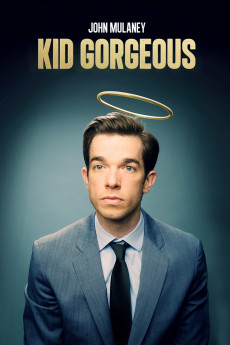John Mulaney: Kid Gorgeous at Radio City (2018)
Action,Comedy
John Mulaney,Jon Brion
In the introduction, a nervous Mulaney prepares for his performance before he is ushered onstage by a mysterious chaperone. The show begins when, accompanied by organist Jon Brion, Mulaney greets the audience directly and launches into an introspective monologue about his parents' marriage, and his mother's alleged encounters with the supernatural.Following this, Mulaney describes memorable events that have occurred throughout his relationship with his father, who would "pick [him] apart psychologically" rather than enacting physical discipline. Among these are an awkward sex talk regarding composer Leonard Bernstein's perceived homosexuality, and a humorous incident wherein six-year-old Mulaney was compared to a Nazi for failing to intervene during an act of schoolyard bullying.The focus of the performance shifts to Mulaney's childhood, as he recalls the rituals associated with elementary school assemblies and the unusual antics of JJ Bittenbinder, a retired Chicago police detective tasked with informing pupils of "stranger danger". Bittenbinder has since expressed his dismay with Mulaney's parody, disputing the notion that he ever "wore a three-piece suit with a cowboy hat"[16]. Mulaney then examines his tertiary education in similar detail, despairing over student loans and the "audacity" displayed by his former college, Georgetown University, in approaching alumni for donations.Domestic life and the process of donating to Goodwill are skewered in the midst of the performance, before Mulaney details a lawsuit in which his college friends were sued for purported property damage. His failure to address the situation effectively transitions into a self-deprecating segment about the physical and psychological trauma associated with ageing. The relationship between ageing and alleged "grumpiness" segues into a comparison between the most memorable guests that appeared during his tenure on Saturday Night Live (1975), including Patrick Stewart and Mick Jagger.Mulaney's perception of the "olden times" prefaces his frustrations with the online Captcha test routinely mistaking him for a robot. His fascination with "old-timey things" is illustrated by a description of a Connecticut gazebo built during the American Civil War, an act he compares to "performing stand-up comedy now" in the uncertain political climate of the 2010s. This analogy introduces an extended metaphor comparing "this guy we call President" to a "horse loose in a hospital", and reveals Mulaney's rationalisation for his previous disinterest in politics. The joke was first performed in public during Mulaney's 2017 appearance on The Late Show with Stephen Colbert (2015).Mulaney's disdain for "these new Nazis" associated with the presidential establishment culminates in a loving evaluation of his three-and-a-half-year marriage to Annamarie Tendler, a make-up artist and lampshade designer of Jewish heritage. The contrast between their religious upbringings is emphasised by an anecdote concerning their French Bulldog Petunia, as an attempt to recreate Da Vinci's The Last Supper revealed her mistaken belief that Jesus and his disciples were depicted celebrating Thanksgiving.Stories from Mulaney's religious upbringing form the closing segment to the show, as he recalls Biblical stories, homilies and psalms that informed his religious education as a child.
- N/A Company:
- N/A Rated:
- IMDB link IMDB:
- N/A Released:
- N/A DVD Release:
- N/A Box office:
- N/A Writer:
- Alex Timbers Director:
- N/A Website:
All subtitles:
| Rating | Language | Release | Uploader | Download |
|---|---|---|---|---|
| 2 | Arabic |
subtitle John.Mulaney.Kid.Gorgeous.at.Radio.City.NF.WEBRip.1080p John.Mulaney.Kid.Gorgeous.at.Radio.City.NF.WEBRip.720p |
wahab.alahmari | download |
| 1 | English |
subtitle John.Mulaney.Kid.Gorgeous.at.Radio.City.NF.WEBRip.1080p John.Mulaney.Kid.Gorgeous.at.Radio.City.NF.WEBRip.720p |
wahab.alahmari | download |
| 4 | Farsi/Persian | subtitle John.Mulaney.Kid.Gorgeous.at.Radio.City.2018.720p.WEB-DL | soheil_HAIZ | download |
| 1 | Hebrew |
subtitle John.Mulaney.Kid.Gorgeous.at.Radio.City.2018.1080p.WEB.x264-STRiFE John.Mulaney.Kid.Gorgeous.at.Radio.City.2018.720p.WEB.x264-STRiFE John.Mulaney.Kid.Gorgeous.at.Radio.City.2018.WEB.x264-STRiFE |
Sub-Res | download |
